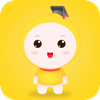Passage 3
For some time past it has been widely accepted that babies - and other creatures - learn to do things because certain acts lead to “rewards”; and there is no reason to doubt that this is true. But it also used to be widely believed that effective reward, at least in the early stages, had to be directly related to such basic physiological (生理的) “drives” as thirst or hunger. In other words, a baby would learn if he got food or drink of some sort of physical comfort, not otherwise.
It is now clear that this is not so. Babies will learn to behave in ways that produce results in the world with no reward except the successful outcome.
Papousek began his studies by using milk in the normal way to “reward” the babies and so teach them to carry out some simple movements, such as turning the head to one side or the other. Then he noticed that a baby who had had enough to drink would refuse the milk but would still go on making the learned response with clear signs of pleasure. So he began to study the children’s responses in situations where no milk was provided. He quickly found that children as young as four months would learn to turn their heads to right or left if the movement “switched on” a display of lights —and indeed that they were capable of learning quite complex turns to bring about this result, for instance, two left or two right, or even to make as many three turns to one side.
Papousek’s light display was placed directly in front of the babies and he made the interesting observation that sometimes they would not turn back to watch the lights closely although they would “smile and bubble” when the display came on. Papousek concluded that it was not primarily the sight of the lights which pleased them, it was the success they were achieving in solving the problem, in mastering the skill, and that there exists a fundamental human urge to make sense of the world and bring it under intentional control.
40.The babies would “smile and bubble” at the lights because ____.
A
the lights were directly related to some basic “drives”
B
the sight of the lights was interesting
C
they need not turn back to watch the lights
D
they succeeded in “switching on” the lights









